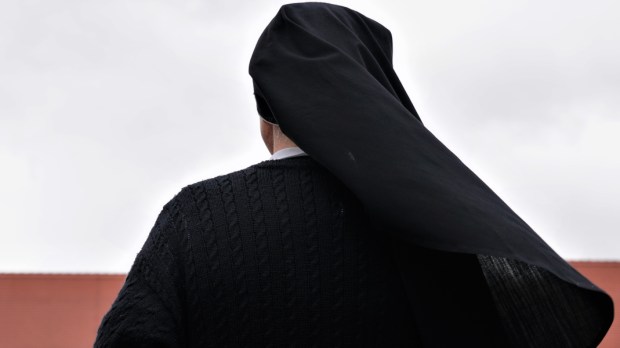Lenten Campaign 2025
This content is free of charge, as are all our articles.
Support us with a donation that is tax-deductible and enable us to continue to reach millions of readers.
From the post office to the cloister: Sister Lilia Maria is a grandmother, wife and widow. At a certain point in her life, she decided to take a new path and entrust herself entirely to God. Thus she arrived, after a long and thoughtful reflection, at a place where she would never have thought of living the rest of her life: a convent.
Postmaster in Mirano to Salesian sister
Lilia Maria Caterina Battaglierin was born in April of 1932. For the first 61 years of her life, she lived an ordinary life in the world. She became a mother, and for 40 years she was the postmaster at a post office in Mirano, Italy (near Venice).
After retirement, as a widow, she took the leap to follow God’s call to religious life. On May 23, 1993, Lilia Maria Caterina Battaglierin became Sister Lilia Maria, a cloistered Salesian nun at the monastery of the Visitation in Padua (Visitandine nuns), reports Il Gazzettino.
Monthly visits
Lilia Maria Caterina Battaglierin celebrated her 25th anniversary as a cloistered nun on July 17. Her surviving family, consisting of her daughter and son-in-law and two grandchildren, speaks to her almost always from a distance; they are only allowed to visit her once a month, per the rules of the monastery, reports TgPadova.
The Visitandines
The order of the Visitation was born in 1610 thanks to St. Francis de Sales and St. Jeanne Frances de Chantal. Members of the order are also known as the Salesian Sisters or, more commonly, as the Visitandines or Visitation Sisters. Initially, the plan was for them to leave the monastery for a few hours each day to go and assist the sick and the poor. Later the community adopted a cloistered rule of life, but one that welcomed the elderly, women with poor health, and widows as members, which was not the norm at the time.
The diocesan newspaper of Padua explains that the nuns don’t read newspapers or watch television except for the Pope’s Sunday Angelus. However, they are not totally cut off from the world: they receive hundreds of letters and prayer requests of many faithful, for whom they pray at various times throughout the day.


